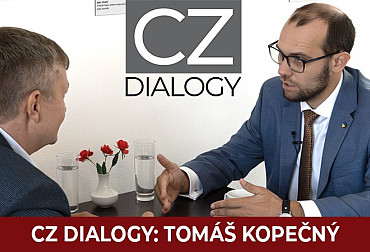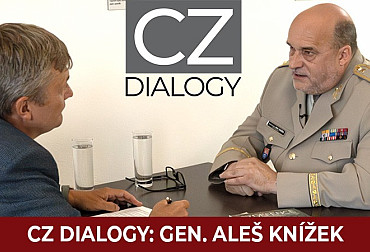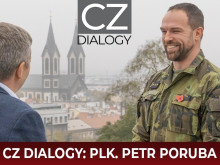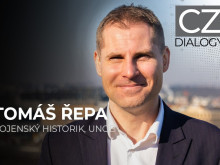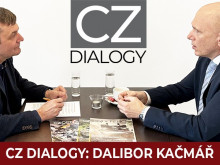Vojtěch Petráček: We will be very active in CV90 programs even in case of F-35 aircraft acquisition
Cooperation between the academic community and the Czech Army has been a big topic especially in recent months. This cooperation is important and beneficial in the context of the gradual renewal of military equipment and technologies for contemporary and future potential battlefields. However, it is also about the use of scientific knowledge for military purposes, where one example is the cooperation between the Czech Army and the Czech Technical University in Prague (CTU). Since 2018, the two cooperating parties have been jointly organising various discussion forums, round tables and workshops, in which representatives of CTU have introduced members of the Czech Armed Forces, for example, to the possibilities of using quantum technologies for military purposes and other important topics. Another milestone was the signing of a Memorandum of Cooperation on the development of breakthrough technologies for the needs of the Czech Army in April this year. However, CTU is also active in foreign military cooperation. It is the Czech representative in the so-called NATO Academic Alliance, a network of academic departments throughout the Alliance that helps shape the future of NATO. Since cooperation between CTU and the Czech Armed Forces is a very interesting topic, we have invited the Rector of CTU, doc. RNDr. Vojtěch Petráček, CSc.
Video: Interview with the Rector of CTU doc. RNDr. Vojtěch Petráček, CSc. / CZ DEFENCE
The biography of CTU Rector Vojtěch Petráček is really varied. He is a Czech nuclear physicist and university teacher. Since February 2018 he has been the Rector of the Czech Technical University in Prague. He first worked at the Department of Electronics and Vacuum Physics at Charles University, then at the Institute of Nuclear Physics of the Czech Academy of Science in Řež, spent four years doing research at the University of Heidelberg, and in 2004 returned to the Czech Republic, to the Czech Technical University, where he became Vice-Rector for Science and Research 5 years later, and after another 9 years as Rector. Together with the Chief of the General Staff of the Czech Army, Gen. Karel Rehka, he initiated meetings between the security and academic communities. The newly signed Memorandum follows the "National Strategy for the Development and Protection of Emerging and Disruptive Technologies in the Czech Republic". The Czech Army pays sufficient attention to artificial intelligence and knows well that it cannot do without it in the future. It has been using it in some form for a long time, such as unmanned or unmanned vehicles, robotic systems or software components. The Department of Military Robotics at the University of Defence in Brno is an expert and simulation base in the field of autonomous and robotic systems that work for the military.
Cooperation between science and the military is taking off and can certainly be improved in many ways. "And that is what we are trying to do, because only recently have the possibilities for this opened up. Historically, we have had certain joint projects in certain segments either with the army or with state-owned enterprises. But I think that in order to really go big, the time for that is only now," says Vojtěch Petráček. The faculties have expert teams working on such topics as artificial intelligence, robotics, autonomous vehicles and other projects for the military. At present, the topics and tasks to be solved for CTU are increasing and it will be necessary to look for new interested volunteers to join the projects. "I would like to reach out and invite them. I would like to address the heads of the theses, students, so that we can meet and say what are the new things that are opening up and what we should start implementing," plans the CTU rector, who also praises the current level of strategic discussion between the General Staff of the Czech Armed Forces and General Rehka and the academic community. "I think this is the first time that a fresh wind has blown from the General Staff. I think the general took it as a great ending. The working group that he created there, of which I am a part, I think is producing a lot of positive results in that we know about each other. We know who can do what, who needs what. We're trying to put together the circuits of what's needed in the Army that's new. And we are trying to fulfill it again from our point of view," says Vojtěch Petráček. Linking research, new technologies and their integration into the defence potential is crucial. "This is not about small innovations, these are important steps towards modern quantum technologies or the use of artificial intelligence or the integration of what different weapon systems can do, which is also part of the work for artificial intelligence. Without this, it is probably not possible to build an effective defence system. I think it is very crucial," explains the CTU rector.
CTU also cooperates with the North Atlantic Alliance. "We are in intensive contact with NATO Transformation Command through DefSec Innovation Hub, which is our close partner organisation. We are trying to build an innovation hub that links different activities, training, several projects. In this way, we try to be as close as possible, especially in those breakthrough technologies," Vojtěch Petráček reveals in the interview. Other teams then work within the framework of various projects of partner organisations.
We wondered whether there is any need to motivate students or researchers. "I think that the main thing here is that some students, some teachers and researchers feel that it is good to support the fact that a technological university wants to help the country's defence. Of course, we're not going to force anybody into it. Everybody feels differently. But lately, I think the urgency is great. And in this way, I imagine that there should be a group of people who will work on this," the CTU rector says, adding that it will also be important how the military will be able to involve some financial incentives or scholarships.
 Picture: In this episode of our discussion show CZ DIALOGY we talked with the Rector of the Czech Technical University doc. RNDr. Vojtěch Petráček, CSc. | Michal Pivoňka / CZ DEFENCE
Picture: In this episode of our discussion show CZ DIALOGY we talked with the Rector of the Czech Technical University doc. RNDr. Vojtěch Petráček, CSc. | Michal Pivoňka / CZ DEFENCE
We asked whether the engineering students who will be in the professional teams will eventually leave for the structures of the army, given the growing demands on the army, which will innovate and need educated soldiers. "I think the concept is even broader than that. She will need expert support, and from a much broader group of people than just internal experts. There may be a group of external experts who can advise or help the military, but they don't have to be members of the military. And I think that's probably the direction that most of it will be headed. Of course, anybody who feels that it would be appropriate to be directly in that component, there's nothing to prevent that. But I think that the main focus will be on professional external assistance in projects, activities, synergies, consultancy in various forms, but from the civilian sector," says Vojtěch Petráček, the rector of CTU.
The potential of projects for the army is great. As already mentioned, everything is at the beginning, including setting up communication between the two entities. "We already have it connected with the general. We have met with them several times. We've been talking about what we can do and we've been talking about what are the current ideas about the needs of the army. It's a two-way process," Vojtěch Petráček said. "Historically, there has been work on autonomous systems, autonomous vehicles or drones. Artificial intelligence is probably the next thing that will start to develop here and we will of course be very active, both in the CV90 programmes and in the case of the acquisition of the 5th generation F-35 aircraft," the CTU rector specifies the near future. Let us add that in this case, the solutions within the project would mainly concern the analysis of the huge amount of data that this aircraft is able to acquire and pass on for further use.
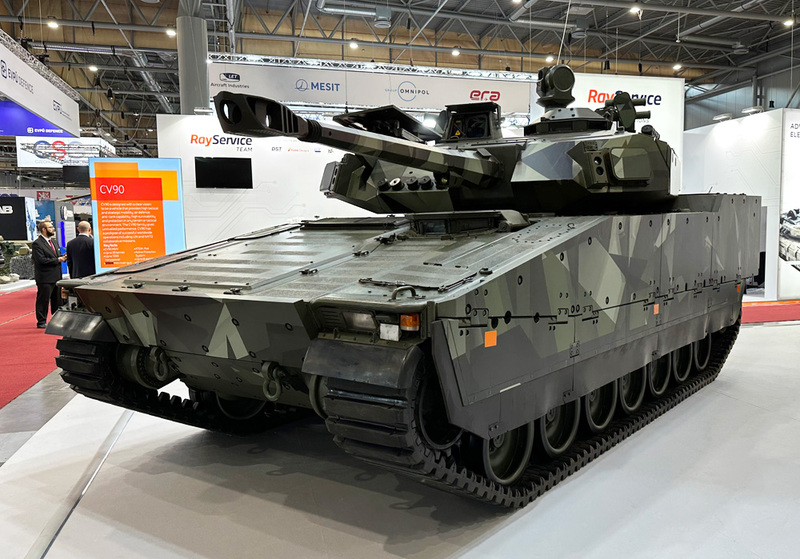 Picture: CV90 infantry fighting vehicle at IDET 2023 | Michal Pivoňka / CZ DEFENCE
Picture: CV90 infantry fighting vehicle at IDET 2023 | Michal Pivoňka / CZ DEFENCE
At this year's IDET fair, the requirement to fulfil the chain between science, research, production and the target recipient of technology - the military - was very often voiced, so we were interested in Vojtěch Petráček's opinion. "This is quite a complicated question. It is a bit related to the research funding models that the army has implemented so far. We simply need to prepare technologies that are not on the battlefield in the same year or in two years, but we need to work with them," says the rector of CTU, doc. RNDr. Vojtěch Petráček, CSc.
If you are interested in the cooperation between the Czech Technical University and the Army of the Czech Republic and want to learn more about the university's scientific projects and international cooperation, listen to the full interview at the beginning of this article.















